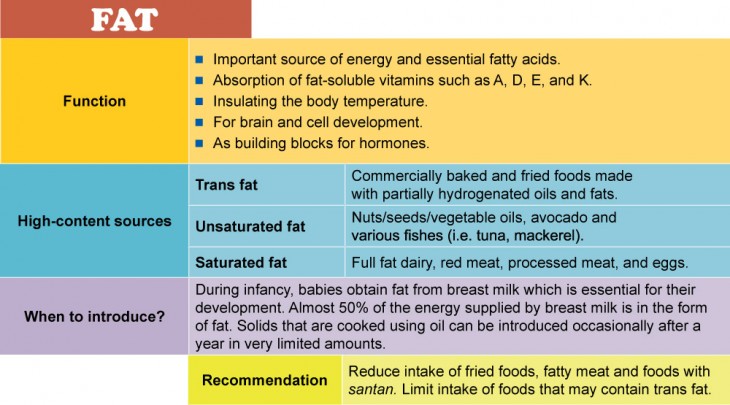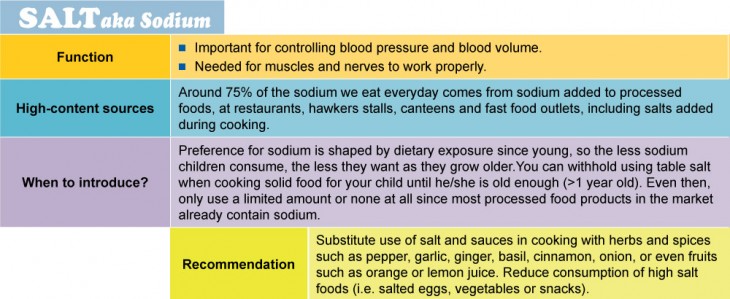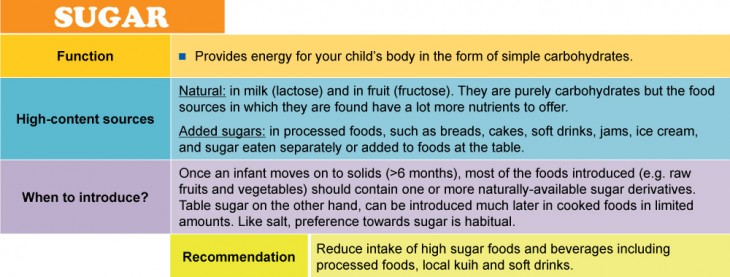Fats, salt and sugar are integral dietary components for the growth and development of your child. However, they are only needed in small amounts; this is why it occupies the top portion of the Malaysian Food Pyramid. It implies that all three components should be consumed the least compared to other food groups at the lower levels of the food pyramid. That’s because in excess;

- Fats have been linked to increased risk of obesity, coronary heart disease and certain types of cancer.
- Salt may lead to high blood pressure and diseases such as stomach cancer.
- Sugar provides unneeded empty calories that cause weight gain thus leading to overweight and obesity as well as increases risk of diabetes and possibly other non-communicable diseases.
The Facts About Fats, Salt And Sugar
Understand the following simple information about fats, salt and sugar. They will guide you in appropriate consumption of foods containing these nutrients.
Practical Tips You Can Follow
You should seek to limit your child’s intake of foods that are high in fats, salt and sugar. However, this does not mean subjecting them to a stringent “low-“or “none-at-all” diet. Here are some smarter, healthier solutions:
- Be a role model and practice what you preach.
- Trim away fat in meat and discard poultry skin.
- Practice healthy cooking methods: Stir-fry, steam, stew, grill, roast, or sear your dishes with as little oil as possible or none at all.
- Use kitchen towels/ tissue to blot out excess oil after deep-frying your dishes.
- Use plant-based oils (i.e. palm oil) if you decide to fry a dish and if you’re baking, reduce use of sugar by one third from the amount you normally use.
- Sauces, seasoning and table salt contain a lot of sodium. Try adding flavour by using natural herbs and spices as a substitute.
- Limit fast foods and do not associate it as a reward.
- Pack healthy snacks for school (fruits, cereal bars, tau fufah, etc.), do not skip main meals (breakfast, lunch and dinner) and prepare moderate portion of a variety of foods at home.
A balanced diet which consists of a variety of food items ensures your child obtains different nutrients he/she needs for optimum growth and overall health. Similarly important is to encourage your child to do regular physical activity for at least 30 minutes of moderate intensity exercise each day.
Use the Malaysian Food Pyramid as your guide or head on to the Nutrition Society of Malaysia’s website for even more educational materials on healthy eating (www.nutriweb.org.my). Remember, a child who eats well, grows well.
An educational collaboration with Nutrition Society of Malaysia.










Comments